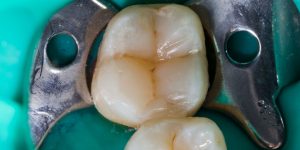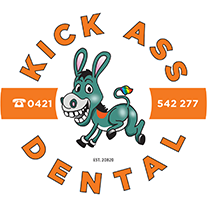Is it Too Late to Reverse Tooth Decay? Exploring Treatment Options
Understanding Tooth Decay and its Consequences
The Importance of Dental Health
Maintaining good dental health is essential for overall well-being. However, many individuals neglect their oral hygiene, leading to common dental problems such as tooth decay. Tooth decay, also known as dental caries, is a prevalent condition characterized by the gradual destruction of the tooth structure. The primary culprit behind tooth decay is the accumulation of plaque, a sticky film of bacteria that forms on teeth due to poor oral hygiene practices.
If left untreated, tooth decay can progress and cause various complications, including toothache, infection, and even tooth loss. The question that often arises is whether it is too late to reverse tooth decay once it has set in. In this article, we will explore different treatment options and shed light on the possibilities of reversing tooth decay.
Early Stages of Tooth Decay: Reversible Decay
Identifying the Signs
In the initial stages, tooth decay may exhibit minimal or no symptoms. However, certain signs can indicate the presence of early-stage decay. These include white spots on the tooth surface, sensitivity to hot and cold temperatures, and occasional tooth pain while eating. Regular dental check-ups and professional examinations can help identify these early signs and prevent further progression.
Preventive Measures
When tooth decay is detected in its early stages, it is often possible to reverse the process and restore the affected tooth structure. Dentists commonly recommend the following preventive measures:
Improved Oral Hygiene: Maintaining a proper oral care routine, including regular brushing with fluoride toothpaste, flossing, and using mouthwash, can help remove plaque and prevent the decay from worsening.
Dietary Modifications: Reducing the consumption of sugary and acidic foods and drinks, as they contribute to the demineralization of tooth enamel, can halt the progression of decay.
Fluoride Treatment: Fluoride is a mineral that can strengthen tooth enamel and aid in remineralization. Dentists may recommend professional fluoride treatments or the use of fluoride-containing toothpaste or mouthwash.
By following these preventive measures and maintaining good oral hygiene practices, individuals can potentially reverse tooth decay and restore their dental health.
Advanced Tooth Decay: Treatment Options
Dental Fillings
When tooth decay progresses beyond the early stages, it leads to the formation of cavities or holes in the teeth. In such cases, dental fillings are the most common treatment option. During this procedure, the dentist removes the decayed portion of the tooth and fills the cavity with a suitable dental material, such as composite resin or amalgam. Dental fillings restore the tooth’s functionality and prevent further decay.
Dental Crowns
If tooth decay has extensively damaged the tooth structure, a dental crown may be necessary. A dental crown is a cap-shaped restoration that covers the entire visible portion of the tooth above the gumline. It provides strength and protection to the weakened tooth and restores its appearance and functionality.
Root Canal Treatment
In cases where tooth decay has reached the tooth’s pulp or nerve, a root canal treatment may be required. This procedure involves removing the infected or damaged pulp, cleaning the root canals, and sealing them. Afterward, a dental crown is typically placed to protect and strengthen the treated tooth.

Tooth Extraction and Replacement
In severe cases where tooth decay has caused irreparable damage, tooth extraction may be
necessary.
Tooth extraction is the removal of the decayed or damaged tooth from its socket in the jawbone. After extraction, there are several replacement options available to restore the missing tooth, such as dental implants, bridges, or dentures. It is crucial to consult with a dentist to determine the most suitable replacement option based on individual needs and oral health.
Preventing Tooth Decay and Maintaining Oral Health
Good Oral Hygiene Practices
Prevention is always better than cure when it comes to tooth decay. Adopting a proactive approach to oral hygiene can significantly reduce the risk of decay. Here are some key practices to incorporate into your daily routine:
Brushing: Brush your teeth at least twice a day for two minutes using a fluoride toothpaste. Pay attention to all surfaces of your teeth and use a soft-bristled toothbrush to avoid damaging the enamel.
Flossing: Clean between your teeth once a day using dental floss or interdental cleaners to remove plaque and food particles from areas that your toothbrush cannot reach.
Mouthwash: Rinse your mouth with an antibacterial mouthwash to kill bacteria and freshen your breath. Look for a mouthwash that contains fluoride to help strengthen the enamel.
Healthy Diet: Limit your intake of sugary and acidic foods and drinks. Opt for a balanced diet rich in fruits, vegetables, whole grains, and lean proteins to support overall dental and general health.
Regular Dental Check-ups: Schedule regular dental visits for professional cleanings and examinations. Your dentist can detect early signs of tooth decay and provide appropriate treatment before the decay progresses.
Fluoride and Sealants
Fluoride is a mineral that helps prevent tooth decay and promotes remineralization of the enamel. It is found in toothpaste, mouthwash, and water sources. Drinking fluoridated water and using fluoride products as recommended by your dentist can strengthen your teeth and reduce the risk of decay.
Dental sealants are another preventive measure that can protect vulnerable areas of the teeth, such as the chewing surfaces of molars. Sealants are thin, plastic coatings applied to the grooves and pits of the teeth, creating a barrier against bacteria and food particles. For kick ass dental tooth decay see here.

Conclusion
While it is always better to prevent tooth decay through good oral hygiene practices and regular dental care, it is not necessarily too late to reverse tooth decay in its early stages. By adopting preventive measures and seeking timely treatment from a dental professional, individuals can halt the progression of decay and restore their dental health. However, in more advanced cases, treatment options such as fillings, crowns, root canal treatment, or tooth extraction may be necessary to address the damage caused by decay. Remember, maintaining good oral hygiene and seeking professional dental care are key to preventing and addressing tooth decay effectively. Prioritize your dental health to enjoy a healthy smile and overall well-being.





